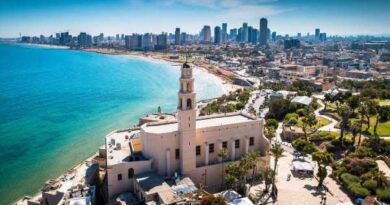Discovering cultural tours, the tamer side of Africa
In a post-Covid world, the draw of Africa’s vast open spaces, natural beauty and spectacular wildlife has been incredible. People who were locked down in their houses for longer than they ever thought possible are now craving the freedom of the natural wilderness.
However, as travelers are looking for longer and more meaningful stays on vacation, it’s important to understand that Africa has more to offer than wildlife. For travel consultants, this can present an interesting upselling opportunity, especially when teaming up with ground handlers who have authentic connections on the ground.
Suzanne Bayly, owner of Classic Portfolio, has seen demand for cities like Cape Town continue to grow together with the niche-but-growing interest in cities like Brazzaville, capital of the Republic of the Congo, with its eclectic vibe of African style, fashion, music and food and, of course, the Congo sapeurs.
According to Murray Gardiner, CEO at Giltedge, travelers today are less focused on metropolises, with smaller cities growing in popularity. For example, the Rwandan capital of Kigali, known as one of the cleanest cities in Africa, has a lot of appeal. He says: “Although Kigali is a small city (under 1 million population) compared to cities in the USA, Europe or other African capital cities, it has a wealth of dining options. The Fusion Restaurant located at the Retreat by Heaven Boutique hotel is one great spot for foodies. There are several shopping outlets in Kigali as well as other small tourist towns like Musanze (in northwest Rwanda), where one can buy souvenirs and crafts. The Nyamirambo Women Center in Kigali was started by a group of women who came together to collectively create, and it sells high-quality clothing, bags, and home accessories.”
Elizabeth Gordon of Extraordinary Journeys says Nai Nami tours in Kenya have also become quite popular for visitors to get a better look at “real life” in the city on tours given by kids (now adults) who raised themselves on the street. She says: “They’re enchanting storytellers who offer a completely new (and welcome) perspective.”
Cultural trips have also gained popularity in Tanzania, according to Mefi Pishori Alapat, safari designer at Journey to Africa. “I have seen more people asking to stay a day or so extra in towns like Arusha, Tanzania, before heading on safari. During these stops, we do a town tour, stop at local coffee shops, eat at restaurants of choice depending on the cuisine they are interested in, etc.”
Alapat said that in Arusha, guests can do beading at a local shop called Sidai Designs or stop at Shanga House and see glassware being made, which can be bought and shipped home. “Since Arusha is my hometown, I have friends who own restaurants and coffee shops, always fun for my guests to go somewhere local for food or good coffee,” she says.
Culinary tours have become increasingly popular in countries like Ethiopia and Rwanda, as well, says Marc Christensen, founder and operations manager at Brilliant Africa. Christensen said he relies on his personal connections to offer travelers unique experiences “A friend of mine, Xavi, runs GoAddis and GoKigali. Their flagship Addis itinerary is the full-day food tour ($150 USD per person). It is a foodie’s dream, and the perfect entree to Ethiopian culture, history and tradition. The Food Tour was the first tour they ever launched back in 2013 and includes the popular coffee ceremony.”
Also in South Africa, culinary tourism is bursting at the seams, according to Pieter Brundyn of In Residence. He said the growth has been attributed to an improvement in authentic, curated experiences for travelers who are drawn to this niche, seeking cultural experiences through food.
Even when avoiding the cities and heading for the traditional wildlife areas, travelers can broaden their experience with interesting add-ons. Christensen said that places that are normally focused on wildlife, like gorilla trekking in Bwindi National Park in Uganda, are increasingly offering cultural tourism initiatives like the Batwa Development Program.
“There’s a real drive towards sustainable and responsible tourism in East Africa, and local operators, lodges and stakeholders are pushing for more ‘educational’ trips rather than having people jump into a Landcruiser, seeing the wildlife and then leaving without learning anything about the region and surrounding communities,” he said.
Journey to Africa’s Alapat agreed, saying she recently did a survey on social media and found a lot of people really interested in a walking safari with the local tribe. “A lovely walk and chat in the morning showcasing the roots and plants that they use in their daily lives is a nice way to learn about another culture. We want to incorporate more of that in areas we can, like southern Serengeti,” she says.
Jim Holden, president of Holden Safaris, said the Covid pandemic has created an awareness of the fragility of nature in the face of human development. As a result, people are more aware of the importance of all aspects of nature, and not just wildlife.
“This has provided an opportunity for safari lodges and tour operators to add activities to the traditional safari, such as walks in nature to better understand ecology, and the symbiosis of everything around us that is essential to maintaining the equilibrium of our environment,” Holden said. “And alongside ecotourism is everything to do with wellness and balance. After more than a year of lockdown and turmoil to all our lives, we’re all looking for an opportunity to reflect on the Covid experience and to find meaningfulness in our lives again.”
Source: Read Full Article




